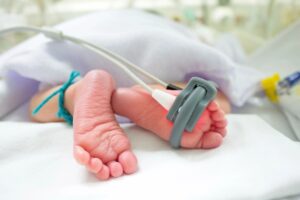When Does a Child Need Surgery for GERD?
If your child has gastroesophageal reflux disease (GERD), sometimes changes in medication and lifestyle, such as eating smaller meals or avoiding spicy and acidic foods, can help relieve the symptoms. However, if these methods do not work or if the reflux problem becomes severe, the doctor may recommend surgery.
Common Surgical Procedure: Fundoplication
The most common surgery is fundoplication, also known as Nissen fundoplication. While this may sound complicated, what the doctor actually does is fold the upper part of the stomach around the lower part of the esophagus. This "wrap" strengthens the valve between the esophagus and stomach, preventing acid from flowing back into the esophagus.
The surgery is typically performed laparoscopically, meaning the doctor makes several small incisions in the child’s abdomen and uses small tools and a camera to perform the operation. Compared to traditional open surgery, laparoscopic surgery has a shorter recovery time and smaller incisions.
Post-Surgery Recovery
After the surgery, your child will usually need to stay in the hospital for a few days for observation. The doctor will help your child gradually return to eating, starting with liquids or soft foods, and then transitioning to normal foods. Most children can return to regular activities within a few weeks after the surgery, and GERD symptoms often improve significantly.
Risks of Surgery
Like any surgery, fundoplication has its risks. After the surgery, your child may experience difficulty swallowing, bloating, or an inability to burp. However, the doctor will discuss these potential risks in detail with you and provide appropriate care instructions after the surgery.
How to Care for Your Child After Surgery?
After the surgery, parents need to pay special attention to their child's recovery process to help them recover smoothly. Here are some key care tips:
1. Diet Care
After surgery, your child’s stomach needs time to recover, so be cautious with their diet:
- Gradual Return to Food: In the first few days after surgery, the doctor may recommend giving your child liquids or semi-liquids, such as soup, puree, or soft foods. As your child adapts, gradually transition to solid foods.
- Small, Frequent Meals: Avoid giving your child large portions of food at once. Smaller, more frequent meals can help reduce the digestive load.
- Avoid Irritating Foods: Spicy, greasy, and acidic foods should be avoided, as they may irritate the stomach and hinder recovery.
2. Wound Care
Parents should monitor the child's incision sites, especially the small cuts made during laparoscopic surgery:
- Keep the Wound Clean and Dry: Ensure the wound area is clean. Follow the doctor's instructions to change bandages or clean the wound to prevent infection.
- Check Wound Healing: If you notice redness, discharge, or if your child develops a fever, these could be signs of infection. Contact the doctor immediately.
3. Activity Control
Your child may need time to return to normal activity levels after surgery:
- Adequate Rest: In the first few days after surgery, your child should avoid strenuous activities or exercise to give their body enough time to recover.
- Gradually Increase Activity: As recovery progresses, the doctor may allow your child to slowly increase their activity levels, but parents should avoid letting the child engage in intense activities like running or jumping.
4. Symptom Monitoring
Parents should closely observe their child’s condition after surgery:
- Monitor Swallowing: Some children may experience temporary swallowing difficulties after surgery, which is normal. If the problem persists or worsens, notify the doctor.
- Watch for Bloating and Gas: After surgery, your child may feel bloated or have difficulty burping. Helping them eat small amounts slowly can relieve these issues.
5. Follow Medication Instructions
The doctor may prescribe medications to help your child recover, such as pain relievers, antibiotics, or digestion aids. Parents should strictly follow the doctor’s instructions and administer the medications on time to ensure smooth recovery.
6. Regular Follow-Ups
Parents should take their child for regular follow-ups according to the doctor’s advice to monitor recovery progress. The doctor will assess the success of the surgery and ensure there are no complications.
7. Emotional Support
Children may feel anxious or uneasy after surgery. Parents should provide ample emotional support, reassure them, and encourage a positive mindset during recovery.
With proper post-surgery care, parents can help their child through the recovery period smoothly and achieve the best results from the surgery. If there are any issues or discomfort, contacting the doctor promptly is crucial.













